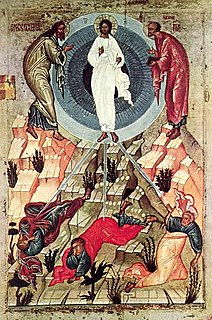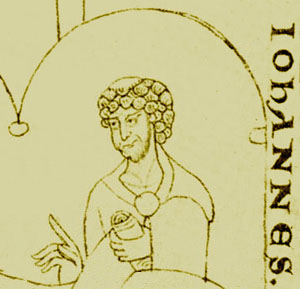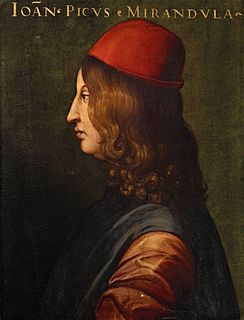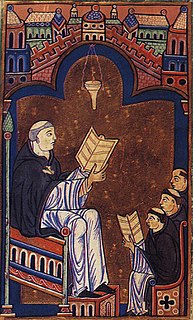 W
WChristine de Pizan or Pisan, born Cristina da Pizzano, was a poet and author at the court of King Charles VI of France and several French dukes. Venetian by birth, Christine served as a court writer in medieval France after the death of her husband. Christine's patrons included dukes Louis I of Orleans, Philip the Bold, and John the Fearless. Her best known works include The Book of the City of Ladies and The Treasure of the City of Ladies, both written when she worked for John the Fearless of Burgundy. Her books of advice to princesses, princes, and knights remained in print until the 16th century.
 W
WEckhart von Hochheim, commonly known as Meister Eckhart or Eckehart, was a German theologian, philosopher and mystic, born near Gotha in the Landgraviate of Thuringia in the Holy Roman Empire.
 W
WDesiderius Erasmus Roterodamus was a Dutch philosopher and Christian scholar who is widely considered to have been one of the greatest scholars of the northern Renaissance. As a Catholic priest, Erasmus was an important figure in classical scholarship who wrote in a pure Latin style. Among humanists he enjoyed the sobriquet "Prince of the Humanists", and has been called "the crowning glory of the Christian humanists". Using humanist techniques for working on texts, he prepared important new Latin and Greek editions of the New Testament, which raised questions that would be influential in the Protestant Reformation and Catholic Counter-Reformation. He also wrote On Free Will, In Praise of Folly, Handbook of a Christian Knight, On Civility in Children, Copia: Foundations of the Abundant Style, Julius Exclusus, and many other works.
 W
WJohn Scotus Eriugena or Johannes Scotus Erigena was an Irish theologian, neoplatonist philosopher, and poet. He succeeded Alcuin of York (735–804) as head of the Palace School at Aachen.
 W
WAl-Ghazali was a Persian philosopher who was one of the most prominent and influential Muslim philosophers, theologians, jurists, and mystics, of Sunni Islam.
 W
WGiles of Rome O.S.A., was a Medieval philosopher and Scholastic theologian and a friar of the Order of St Augustine, who was also appointed to the positions of Prior General of his Order and as Archbishop of Bourges. He is famed as being a logician, producing a commentary on the Organon by Aristotle, and for his authorship of two important works, De Ecclesiastica Potestate, a major text of early 14th century Papalism, and De Regimine Principum, a guide book for Christian temporal leadership. Giles was styled Doctor Fundatissimus by Pope Benedict XIV.
 W
WRobert Grosseteste was an English statesman, scholastic philosopher, theologian, scientist and Bishop of Lincoln. He was born of humble parents at Stradbroke in Suffolk. Upon his death, he was almost universally revered as a saint in England, but attempts to procure a formal canonisation failed. A. C. Crombie calls him "the real founder of the tradition of scientific thought in medieval Oxford, and in some ways, of the modern English intellectual tradition".
 W
WJohn Major (1467–1550) was a Scottish philosopher, theologian, and historian who was much admired in his day and was an acknowledged influence on all the great thinkers of the time. A renowned teacher, his works were much collected and frequently republished across Europe. His "sane conservatism" and his sceptical, logical approach to the study of texts such as Aristotle or the Bible were less prized in the subsequent age of humanism where a more committed and linguistic/literary, approach prevailed. His influence in logic, science, politics, Church, and international law can be traced across the centuries and appear decidedly modern, and it is only in the modern age that he is not routinely dismissed as a scholastic. His Latin style did not help – he thought that "it is of more moment to understand aright, and clearly to lay down the truth of any matter than to use eloquent language". Nevertheless, it is to his writings, including their dedications, that we owe much of our knowledge of the everyday facts of Major's life – for example his "shortness of stature". He was an extremely curious and very observant man, and used his experiences – of earthquakes in Paisley, thunder in Glasgow, storms at sea, eating oatcakes in northern England – to illustrate the more abstract parts of his logical writings.
 W
WGiovanni Pico della Mirandola was an Italian Renaissance nobleman and philosopher. He is famed for the events of 1486, when, at the age of 23, he proposed to defend 900 theses on religion, philosophy, natural philosophy, and magic against all comers, for which he wrote the Oration on the Dignity of Man, which has been called the "Manifesto of the Renaissance", and a key text of Renaissance humanism and of what has been called the "Hermetic Reformation". He was the founder of the tradition of Christian Kabbalah, a key tenet of early modern Western esotericism. The 900 Theses was the first printed book to be universally banned by the Church.
 W
WAbū Bakr Muhammad ibn Zakariyyā al-Rāzī or Rasis; 854–925 CE), was a Persian polymath, physician, alchemist, philosopher, and important figure in the history of medicine. He also wrote on logic, astronomy and grammar.
 W
WRichard of Saint Victor was a Medieval Scottish philosopher and theologian and one of the most influential religious thinkers of his time. A canon regular, he was a prominent mystical theologian, and was prior of the famous Augustinian Abbey of Saint Victor in Paris from 1162 until his death in 1173.
 W
WSheikh Yusof bin Ya'qub Sarvestani was an astronomer, calligrapher and philosopher of Iranian Sunnis in the Ilkhanate period. The tomb of Sheikh Yusof Sarvestani is located in the city center of Sarvestan, adjacent to the field with the same name.
 W
WWilliam Vorilong, also known as Guillermus Vorrilong, Willem of Verolon, William of Vaurouillon, Guilelmus de Valle Rouillonis, etc. was a French philosopher and theologian. He wrote a biography of Duns Scotus. From 1457 onwards he was a regent master in Lyon, becoming licentiate and master of theology at Lyon in 1458.